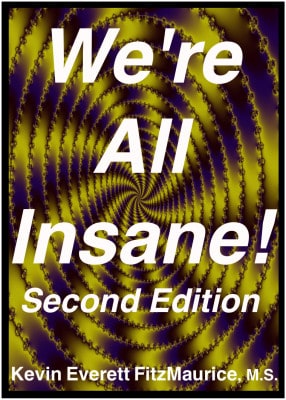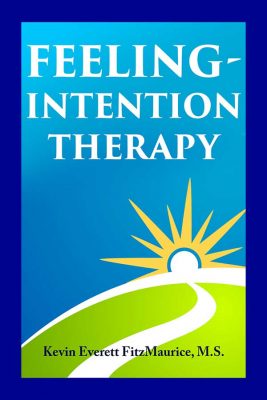Should Counseling Be Political?
- Garden will teach you an easy and effective Cognitive Behavioral Therapy (CBT & REBT) system.
Should counseling be political? How about behavioral or developmental? Or should counseling remain as counseling?
- Read and discover why thinking cannot solve our problems.
- Discover the most advanced and effective counseling system available today.
Should counseling be political? Note on Page
- This is as it originally appeared online.
Should counseling be political?
EMPOWERMENT THROUGH SOCIAL ACTION
- ACA’s 1998 World Conference in Indianapolis
- March 31, 1998
Being There on the World Counseling Network
- hosted by
- Jeffrey T. Guterman, Ph.D., and Peggy Kirk, MBA, M.S.
Is Counseling the Place for Social Reform?
- a response by
- Kevin Everett FitzMaurice, M.S., NCC, CCMHC, LPC
Should counseling be political?
Notice for Opportunity to Respond
On March 31, I will be online from 3:00 p.m. to 4:00 p.m. Eastern time via https://www.globalcounselingnetwork.com/. I have organized my response to this question by numbering (1 through 45) my thoughts. This was done to enable you to dialogue with me regarding the specific points of my position. My e-mail address is: (deleted for privacy).
“The problem is the mind itself, and not the problems it breeds;
the resolution of the problems bred by the mind is merely
the reconciliation of effects, and that only leads to
further confusion and illusion.”
—J. Krishnamurti
Commentaries on Living, Second Series, p. 84
- Read and discover why thinking cannot solve our problems.
- Discover the most advanced and effective counseling system available today.
Should Counseling Be Political?
45 Points Listed
- If I did not believe that working on mental health issues was the small change that would affect the large change, I would not have become a professional counselor.
- If I were interested in focusing on behavioral well-being, I would not have become a professional counselor but a social reformer, a politician, or a lawmaker.
- If I wanted to focus on social reform, I would have become a social worker instead of a mental health counselor.
- If I were interested in focusing on chemical well-being, I would have become a psychiatrist instead of a mental health counselor.
- I believe that mental health is important enough to deserve its profession, professional counselors, and its focus, mental health counseling.
- I see spiritual, mental, behavioral, social, fifth, and physical or chemical health as the areas for intervention.
- A behavioral focus in schools and the workplace is necessary but insufficient.
- A chemical focus for those trained in the narrow medical model is appropriate but insufficient.
- Spiritual health is primary. Therefore, it is best to work on spiritual health first, as all other areas (mental, behavioral, social, and chemical) depend on spiritual health, and all will most likely improve if spiritual health improves.
- Though there are separate and independent areas of spiritual, mental, behavioral, social, and chemical health—they are all also interrelated, interconnected, and interdependent. That is, while it is possible to have one area functioning discretely from the others–it is not the norm. More common is the experience where, for instance, a chemical problem (a cold in the body) is used by the mind (thinking, e.g., catastrophizing) to create another problem (a mental and emotional problem), which affects behavioral responses (e.g., irritability), social supports (e.g., increased arguments), and spiritual integrity (e.g., saying things you regret).
- The debate about whether or not you can focus on only one of the five systems or whether or not you can only focus on the whole system through one of the five systems–is a false debate. The arguments for a systems approach versus those for an individual approach are based on the false assumption that this is a real either/or question with a real either/or answer. The question should be, can you both focus on the system or the individual and also be able to focus on the system or the individual while simultaneously focusing on the other? The answer is that you can focus on just affecting the system or the individual and successfully target and limit your intervention. You can focus on either the system or the individual and affect both. You can focus on one and affect all, or you can focus on one and affect one. You can also focus on all and affect one or focus on all and affect all.
- A top-down approach is the sanest, effective, and efficient way to proceed: spiritual to mental, behavioral to social to chemical. However, intervention at any level can potentially improve the entire interacting system.
- Why focus on mental health if spiritual health is primary? First, because more people are open to working on mental health than spiritual health. Second, there is far more training available for mental health that is based on research than there is for spiritual health. Third, mental health makes a good second choice as mental health is higher and, therefore, more productive to work on than behavioral, social, or chemical health.
- A political focus is the most immature focus as it is based on externalizing the enemy. There is only one enemy, and it is to be found inside, not outside of the body.
- No political focus can work. Even if we have a perfect political system in all ways, people who are corrupt internally will corrupt any external system, no matter how perfectly designed.
- Any political system can work. Throughout history, every form of government has been used for evil and good. There are periods when even the most potentially evil system of government has functioned beautifully because the people in it were moral. There are periods when even the most potentially good system of government has functioned horribly because the people in it were immoral.
- If we focus on mental health, achieving politically correct systems becomes unimportant and even unnecessary. “Mind over matter,” “Attitude is everything,” and “It’s all in the mind” are not just clichés; rather, they represent a way of life that works. As noted just above, the functioning of people with mental health is not dependent on political systems, but the functioning of political systems is dependent on people with mental health.
- A majority of sound minds can deal with and overcome a poor political system, but a good political system cannot deal with or overcome a majority of unsound minds.
- Mental health will cause political health, but political health will not cause mental health.
- I am not saying that political systems cannot be improved and that improving systems cannot have some positive impact. What I am saying is that compared to the mission of improving the mental health of the populace, improving the political system is nothing.
- We know from mental health that inner-directedness is key. But a political focus is, by definition, an outer-directedness. Hence, a political focus indicates poor mental health: outer-directedness.
- An internal locus of control is a sign of mental health. An external locus of control is a sign of socialized insanity, e.g., victimhood, careaholic, workaholic, and codependency. A seeking of answers through politics is another expression of an external locus of control.
- Invariably, those seeking solutions through politics have not properly sought solutions. “Physician heal thyself” should take precedence. For instance, the mental health field has the greatest stigma regarding employing people with a mental health problem or a history of one.
- Political activism is, more often than not, a form of escapism—escapism from the real work of inner exposure.
- Currently, we need political systems. Who is willing to live in a society that does not have a police department, a fire department, a sanitation system, a health department, child-protective services, a transportation department, etc.? But most of these are symptomatic. Most political systems exist to band-aid the results of mental health problems.
- Political systems are, at best, reactive. Authentic proactive work is the work of spreading mental health.
- Political systems increase bureaucracy and shackles. Mental health simplifies and frees.
- Political systems focus on laws, control, legalism, behaviorism, power, presentation, and punishment. Mental health focuses on freedom, light, heart, soul, mind, responsibility, empathy, honesty, spontaneity, creativity, forgiveness, understanding, sharing, and caring.
- Political systems are putting the conscience in charge and on guard. This conscience can turn negative and destructive at any time, for example, the political repression of dissidents. Mental health is putting the heart in charge and on guard.
- Political systems are the way of words, lawyers, and controlling semantic reactions. Mental health is the way of feeling, insight, intuition, and freeing semantic reactions.
- The best political system is only an example of bad parenting because it lacks life, encouragement, experimentation, and love: discipline without the counterbalance of love or the right to learn from mistakes.
- A mental health change is something the person has internally; therefore, unlike a systems change, it will not be easily lost by a mere environmental change. People can take their mental health with them, but system changes may not transfer at all, especially if they are not conscious.
- Am I saying you should not make behavioral, social, and chemical changes? No, I am saying that if you make true mental health changes, you will also make behavioral, social, and chemical changes.
- The test to see if you made true mental health changes is to see if you also made beneficial behavioral, social, and chemical changes.
- Am I saying that mental insight is enough? No, I am saying that deep mental insight leads to deep emotional insight, which leads to deep behavioral insight, and that all of this insight causes positive chemical changes in the brain all along the way.
- Am I saying that you should never have a behavioral focus? No, sometimes your behavioral symptoms are so severe that you first need to make a behavioral change to be able to make a profound mental change. For instance, you may be doing something life-threatening, like using illegal drugs or cutting yourself. However, as a counselor, you will find it impossible not to concomitantly work with the person on switching or restructuring their ideation even with your behavioral focus if your behavioral focus is to succeed.
- Am I saying that you should never have a social focus? No, sometimes your social symptoms are so severe that you must first change your social systems to make a profound mental change. For instance, you may need a place to live and work. However, as a counselor, you will find that to help the person find a place to live and work–there will be mental health issues that you cannot avoid addressing along the way.
- Am I saying that you should never have a chemical focus? No, sometimes your chemical symptoms are so severe that you first need a chemical change (psychotropic medication) to be able to make a profound mental change. Yet, even then, there will be mental changes that the psychiatrist will induce as they educate the client into taking the psychotropics. Furthermore, scientific studies show that changes in thinking also cause chemical changes; in other words, we have evidence that changing your attitude can rebalance your brain chemicals without using any medications. See the work of Aaron T. Beck, the father of Cognitive Therapy, at the University of Pennsylvania for more information on this phenomenon.
- Chemical imbalances in the brain are a symptom of mental health problems and not a cause of mental health problems. Change the thinking and the chemicals will also change. Change the chemicals, and the thinking is only reduced, not changed. Yes, reducing one form of thinking does allow another to come in. But you have not changed (uprooted) the old but only made it more difficult for the old to be fully expressed.
- It would help if you intervened in as many areas (spiritual, mental, behavioral, social, chemical) as possible. However, your main focus should be to intervene where you can do the most good: mental health.
- We are allowing our field to be overrun by bureaucrats. We need to stand up for a mental health focus and fight the behavioral and chemical focus driven by greed.
- Mental health counselors should be supervised by experienced mental health counselors practicing psychotherapy. A person whose main training and experience is in psychometrics is not a good supervisor for someone whose main education and interest is psychotherapy.
- Mental health counselors should be supervised by experienced mental health counselors practicing psychotherapy. A person whose main training and experience is in psychotropics is not a good supervisor for someone whose main education and interest is in psychotherapy.
- Counselors can’t recommend what they haven’t tried: counseling. If counseling isn’t good enough for you then you aren’t good enough for counseling.
- After all, ACA’s role as a political activist is just a moot point considering that in all the years of ACA’s existence, ACA has never managed to get counselor provider status in either Medicare or CHAMPUS when even MSWs have those rights.
“Reform, however necessary, only breeds the need for further reform, and there is no end to it.
What is essential is a revolution in man’s thinking, not patchwork reform.
Without a fundamental change in the mind and heart of man, reform merely puts him to sleep by helping him to be further satisfied.
This is fairly obvious, isn’t it?”
—J. Krishnamurti
Commentaries on Living, Third Series, page 12
Should Counseling Be Political?
Information on Krishnamurti
- www.kfa.org
- This discussion also occurs in the book Planet Earth Insane Asylum for the Universe: The First Report to the 2000 High Council. Please refer to the new edition for more information, Planet Earth: Insane Asylum for the Universe, Second Edition.
“In the future, each effort at reformation, if its leader be a true reformer, will direct itself against the mass as such and not against the government.” —Søren Kierkegaard
- Read and discover why thinking cannot solve our problems.
- Discover the most advanced and effective counseling system available today.
Should Counseling Be Political?
Quotations Various Sources
“A fool is only a fool because he won’t see he is a fool.” —Kevin Everett FitzMaurice
“A man of genius makes no mistakes. His errors are volitional and are the portals of discovery.” —James Joyce
“But if ye be without chastisement, whereof all are partakers, then are ye bastards, and not sons. — Hebrews 12:8
“By honestly acknowledging your past errors, but never damning yourself for them, you can learn to use your past for your own future benefit.” —Albert Ellis and Robert A. Harper, A Guide to Rational Living, Third Edition, p. 194
“Correction is grievous unto him that forsaketh the way: and he that hateth reproof shall die.” —Proverbs 15:5
“Failure doesn’t have anything to do with your intrinsic value as a person.” —Albert Ellis and Robert A. Harper, A Guide to Rational Living, Third Edition, p. 206
“For whom the Lord loveth he chasteneth, and scourgeth every son whom he receiveth.” —Hebrews 12:6
“If we eliminated all errors, we would also eliminate much discovery, art, insight, learning, and creativity that results from facing errors.” —Kevin Everett FitzMaurice
“If ye endure chastening, God dealeth with you as with sons; for what son is he whom the father chasteneth not?” —Hebrews 12:7
“It’s so hard when I have to, and so easy when I want to.” —Annie Gottlier
“My son, despise not the chastening of the LORD; neither be weary of his correction:” —Proverbs 3:11
“Peace is the result of retraining your mind to process life as it is, rather than as you think it should be.” —Wayne Dyer
“REBT exists to help when you think it is so horrible it hurts.” —Kevin Everett FitzMaurice
“The trouble with most of us is that we would rather be ruined by praise than saved by criticism.” —Norman Vincent Peale
“When receiving correction, the wise seeks to learn, and the fool seeks to justify with excuses.” —Kevin Everett FitzMaurice
Should Counseling Be Political?
Quotations from Scripture on Counseling
Listed Biblically
“A wise man will hear, and will increase learning; and a man of understanding shall attain unto wise counsels:” —Proverbs 1:5
“Where no counsel is, the people fall: but in the multitude of counselors there is safety.” —Proverbs 11:14
“The way of a fool is right in his own eyes: but he that hearkeneth unto counsel is wise.” —Proverbs 12:15
“Deceit is in the heart of them that imagine evil: but to the counselors of peace is joy.” —Proverbs 12:20
“Without counsel purposes are disappointed: but in the multitude of counselors they are established.” —Proverbs 15:22
“Hear counsel, and receive instruction, that thou mayest be wise in thy latter end.” —Proverbs 19:20
“Every purpose is established by counsel: and with good advice make war.” —Proverbs 20:18
“Take counsel, execute judgment; make thy shadow as the night in the midst of the noonday; hide the outcasts; bewray not him that wandereth.” —Isaiah 16:3
“Extol not thyself in the counsel of thine own heart; that thy soul be not torn in pieces as a bull [straying alone.]” —Ecclesiasticus 6:2
“As timber girt and bound together in a building cannot be loosed with shaking: so the heart that is stablished by advised counsel shall fear at no time.” —Ecclesiasticus 22:16
“Give not over thy mind to heaviness, and afflict not thyself in thine own counsel.” —Ecclesiasticus 30:21
“A man of counsel will be considerate; but a strange and proud man is not daunted with fear, even when of himself he hath done without counsel.” —Ecclesiasticus 32:18
“And let the counsel of thine own heart stand: for there is no man more faithful unto thee than it.” —Ecclesiasticus 37:13
“Let reason go before every enterprize, and counsel before every action.” —Ecclesiasticus 38:33
“Gold and silver make the foot stand sure: but counsel is esteemed above them both.” —Ecclesiasticus 40:25
- Read and discover why thinking cannot solve our problems.
- Discover the most advanced and effective counseling system available today.
Should Counseling Be Political?
Related Pages of Free Information
- CBT, CT, & REBT Cognitive Psychotherapies: List Pages
- Coping Skills: Free Help
- Counseling Issues: Free Help
- Ego & Self-Esteem Fast-Facts
- Emotional Responsibility: List Pages
- Exercises & Techniques: List Pages
- Feeling & Coping: Fast-Facts
- REBT (Rational Emotive Behavior Therapy): List Pages
- Self-Esteem Issues: List Pages
- Unconditional Self-Esteem (USE): Defined
- Read and discover the best diagrams and maps of how people play games with your mind and heart.
- Read and discover how CBT, REBT, & Stoicism evolved into one system: STPHFR.
- Read and discover why thinking cannot solve our problems.
Should Counseling Be Political?
6 Groups of Topics Menu
- 1. Pages by Topic
- 2. Fast-Facts by Topic
- 3. Quotations by Topic
- 4. Poems by Topic
- 5. Scripture by Topic
- 6. Websites by Topic
- Read and discover how CBT, REBT, & Stoicism evolved into one system: STPHFR.
- Read and discover the world’s best breathing exercise for centering and peace of mind.
- Read and discover why thinking cannot solve our problems.
Should Counseling Be Political?
9 Skills & Topics Menu
- 1. Anger Skills & Topics
- 2. Blame Skills & Topics
- 3. Communication Skills & Topics
- 4. Coping Skills & Topics
- 5. Counseling Skills & Topics
- 6. Praying Skills & Topics
- 7. Recovery Skills & Topics
- 8. Responsibility Skills & Topics
- 9. Thinking Skills & Topics
- Read and discover how CBT, REBT, & Stoicism evolved into one system: STPHFR.
- Read and discover the world’s best breathing exercise for centering and peace of mind.
- Read and discover why thinking cannot solve our problems.





